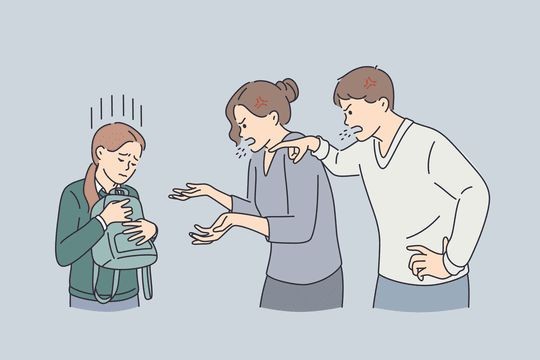Warning: Undefined array key "HTTP_REFERER" in /www/domains/textandtext.com/view/web/text.php on line 17
The Role of Family in Preventing Mental Health Issues in Young People


Mental health is a hot topic these days, especially when it comes to young people. With increasing pressures from school, social media, and the world around them, many young individuals face mental health challenges. But did you know that one of the most significant factors in preventing these issues is the family? Let’s dive into how families can play a crucial role in safeguarding the mental well-being of their youth.
▎Understanding Mental Health in Young People
Before we jump into the family’s role, it’s essential to understand what mental health means for young people. Mental health encompasses emotional, psychological, and social well-being. It affects how young individuals think, feel, and act. When mental health issues arise, they can lead to anxiety, depression, and other serious conditions that can impact daily life.
▎Why Families Matter
Families are often the first line of defense against mental health issues. A supportive family environment can provide young people with the tools they need to navigate life's challenges. Here are a few reasons why families are so important:
1. Emotional Support: Families provide a safe space for young people to express their feelings. When kids know they can talk openly about their emotions without judgment, they’re less likely to bottle things up.
2. Modeling Healthy Behaviors: Parents and guardians set the tone for how to handle stress and emotions. By modeling healthy coping strategies—like exercise, mindfulness, or simply talking about feelings—families teach young people how to manage their mental health.
3. Building Resilience: Families help instill resilience in young people. By facing challenges together and overcoming obstacles as a unit, kids learn that setbacks are a part of life and that they can bounce back from them.
4. Creating a Sense of Belonging: A strong family bond gives young people a sense of belonging and security. This foundation can reduce feelings of isolation and loneliness, which are significant risk factors for mental health issues.
▎Practical Ways Families Can Help
Now that we understand the importance of family in preventing mental health issues, let’s explore some practical steps families can take:
▎1. Open Communication
Encourage open conversations about feelings and emotions. Ask your kids about their day, listen actively, and validate their feelings. This creates an atmosphere where they feel safe discussing their concerns.
▎2. Spend Quality Time Together
Whether it’s family dinners, game nights, or outdoor activities, spending quality time together strengthens family bonds. These moments can be a great way to check in on each other’s well-being without it feeling forced.
▎3. Promote Healthy Lifestyles
Encourage healthy habits such as regular exercise, balanced nutrition, and adequate sleep. Physical health is closely linked to mental health; when young people feel good physically, they are more likely to feel good mentally.
▎4. Be Involved in Their Lives
Take an interest in your child’s activities and friendships. Attend their events, meet their friends, and be present in their lives. This involvement shows that you care and are there for support.
▎5. Seek Help When Needed
If you notice signs of distress or mental health struggles in your child, don’t hesitate to seek professional help. Therapy or counseling can provide additional support and coping strategies tailored to their needs.
▎The Impact of Family on Long-Term Mental Health
Research shows that strong family relationships can lead to better mental health outcomes in adulthood. Young people who grow up in supportive families are more likely to develop healthy coping mechanisms and have lower rates of anxiety and depression later in life.
▎Conclusion
In conclusion, families play an indispensable role in preventing mental health issues among young people. By fostering open communication, spending quality time together, promoting healthy lifestyles, being involved in their lives, and seeking help when necessary, families can create a supportive environment that nurtures mental well-being.
Remember, it’s not just about preventing problems; it’s about building a foundation for a happy and healthy life. So let’s prioritize our families and invest in the mental health of our young people!







